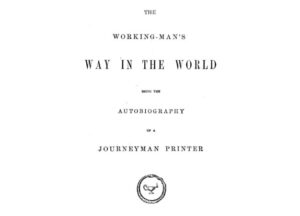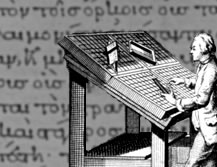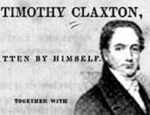Description
 Listen to the classical yarns of Charles Manby Smith (b. 1804), son of cabinet maker, sometime grammar school teacher, and journeyman printer. Around 1815 he attended the ‘grammar school’ in Tiverton, Devon (now known as Blundell’s) where he “enjoyed the advantage of hic-haec-hoc-ing it* for a couple of years”. After leaving school he quickly forgot his Greek, but struggled to keep up his Latin, which—he explains in his memoirs: “grew by slow degrees into an accomplishment not common to my class… and I make the avowal for the benefit of all those to whom the cui-bono is a rule of action—that it never put a pound into my pocket”.
Listen to the classical yarns of Charles Manby Smith (b. 1804), son of cabinet maker, sometime grammar school teacher, and journeyman printer. Around 1815 he attended the ‘grammar school’ in Tiverton, Devon (now known as Blundell’s) where he “enjoyed the advantage of hic-haec-hoc-ing it* for a couple of years”. After leaving school he quickly forgot his Greek, but struggled to keep up his Latin, which—he explains in his memoirs: “grew by slow degrees into an accomplishment not common to my class… and I make the avowal for the benefit of all those to whom the cui-bono is a rule of action—that it never put a pound into my pocket”.
He tells of how—when he was too slow on preparing the frames for the printing of a Greek scholarly edition—another Greek compositor brought in. “When I heard that a Grecian was coming, I expected, as a matter of course, to see a first-class man, one of the gentlemen of the trade, and was not a little astonished to behold a wretched grimy specimen of humanity, nearly forty years of age, fluttering in rags, and literally scaled with filth, with scarcely a shirt and an apology for shoes, inducted into the next frame to mine as my coadjutor. He was a positive scarecrow, but his appearance was no index of his ability. He rained a perfect storm of Greek type into his empty case as he began distribution, and picked it up again when he commenced composing with proportionate rapidity…” The ‘ragged Grecian’ would sip a bottle of gin through the day, and subsisted solely (if we are to believe Smith’s narrative) on a diet of bread and cheese.
Smith’s autobiography (however reliable) reminds us that there were in 19th-century Britain certain routes by which children could acquire a knowledge of Latin and Greek through formal education without having to part with huge sums of money. Smith was allowed to attend the grammar school because his cabinet-maker father had been made ‘a freeman of the town’ (for what distinction or service it is unknown). His story of the ragged Grecian also reveals that in the production of every scholarly edition was a number of diligent proof-readers and compositors (both checking and manually setting and printing the ancient Greek letters) earning a meagre wage often with no job security. Smith goes so far as to say that a “compositor, ignorant perhaps of the very names of the Greek letters, would probably correct proofs of a Greek Testament more efficiently than would a university professor of the language, unused to the patient and scrutinizing routine of press reading.”
*’hic-haec-hoc-ing it’ refers to the practice of memorising Latin grammar, particularly the declension of the demonstrative pronoun ‘hic’ (‘this’).
n.b. around 1820







